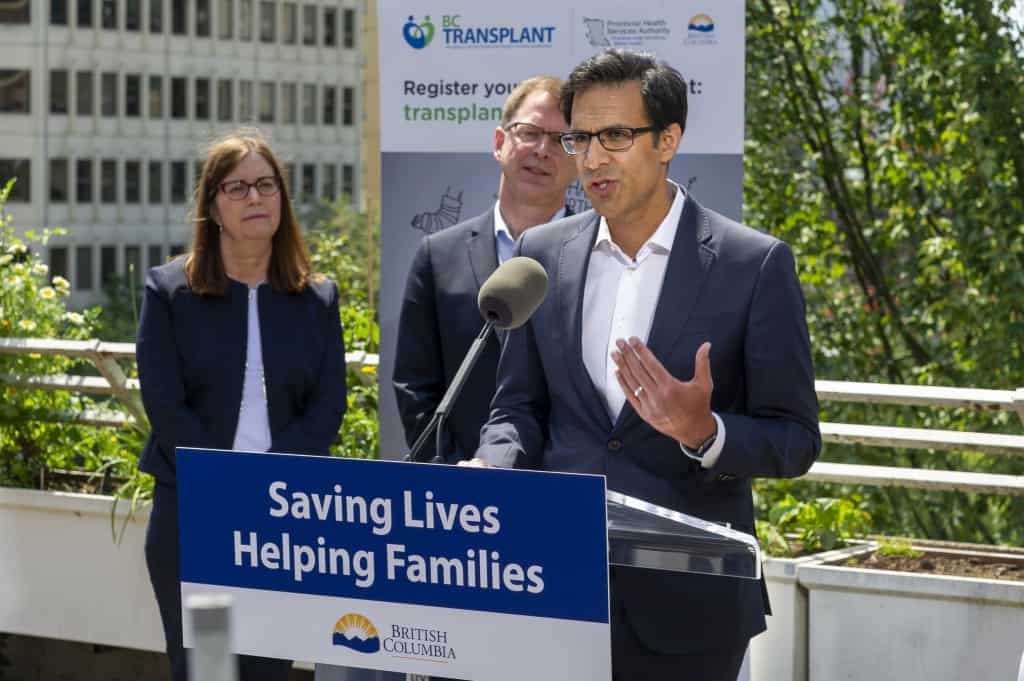At St. Paul’s Hospital, kidney transplant is one of our most successful, life-changing surgeries – especially if the new kidney comes from a living donor. The good news is that BC has one of the highest rates of living kidney donation: last year, 120 of us gave – and received – a living donor kidney!
But the truth is, if you need a new kidney and you live in a remote or rural community in BC, your road to transplant is long and beset with obstacles. If you are part of an Indigenous community, it’s even more complex – and more urgent.
- Kidney failure is 3.5 times higher in Indigenous communities.
- The 5-year survival rate for dialysis is 60%.
- The 5-year survival rate after kidney transplant is 90%.
- Indigenous people are 50% less likely to get a transplant.[1]
Why? Let’s start with geography: almost 70% of BC’s Indigenous people live outside of a large population centre.[2] The path to care is further compounded by the challenges of weather, road conditions, and ferry or flight availability.
Financial hurdles are another obstacle. There’s a strong correlation between kidney transplant (especially with a living donor) and household income: people with lower incomes have significantly lower rates of living donation. Consider that for people in remote locations, each trip to receive care costs an average of $2,200 in travel expenses and lost wages.[3]
It’s also worth noting that the process to receive or donate a kidney can take a year or more; it involves specialized tests not widely available; and the entire process has lacked cultural sensitivity and safety.
Fortunately, renal transplant specialist Dr. Jagbir Gill and his team are building a bridge from St. Paul’s to BC’s remote communities. It’s called Bridge to Transplant and it’s a bold, BC-wide program to ensure rural and remote Indigenous communities have equitable access to get – and give – the gift of a lifetime.
The long, winding road to transplant
Dr. Gill has been a renal transplant specialist at St. Paul’s for 13 years and a clinician scientist with CHÉOS where much of his research focuses on how ethnic and socio-economic disparities affect access to kidney transplant. Dr. Gill is especially interested in what this means for BC’s Indigenous communities.
If you’re not familiar with CHÉOS, it’s a health research powerhouse affiliated with the Providence Health Care Research Institute and UBC’s Faculty of Medicine. Not only is it located at St. Paul’s, its 70 researchers are an integral part of our teaching and research programs.
Dr. Gill has developed a five-pillar plan to improve access to living donor kidneys for Indigenous patients. It’s game-changing for two key reasons: it revolves around culturally-tailored education and support in the community and it’s underpinned by Dr. Gill’s robust scientific approach.
- Ensure everything is culturally-appropriate. Traditional cultural values play a key role in kidney transplant and we know that participants need to find a balance between traditional beliefs and pragmatic needs. To achieve this, the transplant process will include Elders, patient partners, and trusted local health and social service providers.
- Streamline pre-transplant workup and minimize travel. With Dr. Gill’s approach, the donor and recipient will only need travel to Vancouver once.
- Make it easier for people interested in living donation to navigate the process. Once you decide to donate a kidney, there’s a rigorous process of testing and counselling. The Bridge to Transplant program will coordinate all of the moving parts so it’s less cumbersome and time consuming.
- Engage with Indigenous communities to increase knowledge of living kidney transplant and donation. Again, having local partners to answer questions, address barriers, and offer culturally-sensitive guidance will increase understanding and uptake.
- Instill the entire process with cultural safety. Providence Health Care already works closely with the First Nations Health Authority to improve the health care experience for Indigenous and non-Indigenous people and caregivers in remote communities. This will be another extension of that partnership.
With the pillars in place, the biggest challenge facing the Bridge to Transplant program is funding. It’s expensive to bring tests and resources to remote communities; to hire, train, and support local caregivers and navigators; to reimburse donors and recipients for the costs of travel when they do come to Vancouver for their surgeries.
Gifts to St. Paul’s Foundation support Dr. Gill and the renal program. With your help, we can ensure every British Columbian has the opportunity to give – or receive – the gift of a lifetime.
Footnotes
[1] All stats from this Power Point co-authored by Dr. Gill: http://www.bcrenal.ca/resource-gallery/Documents/BCKD2019-Plenary_6-C.Settee_C%20Turner_K.Louie_J.Gill.pdf
[2] https://www12.statcan.gc.ca/census-recensement/2016/as-sa/fogs-spg/desc/Facts-desc-ap-pa.cfm?LANG=Eng&GK=PR&GC=59&TOPIC=9&#fd1_1
[3] https://bcrhn.ca/bcrhn-newsreleases/
